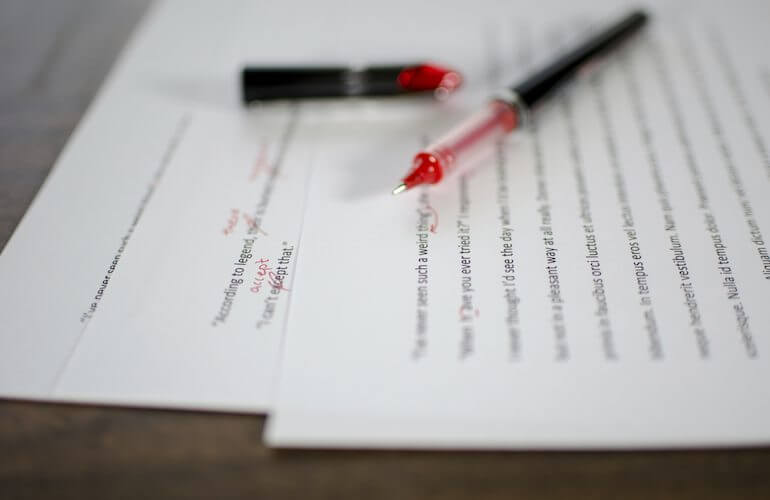Since Marsha tackled listening on Friday, I thought I’d share this post on writing I scribbled awhile back for Accountingfly’s blog.
Writing is part of my job, so I take it pretty seriously. I write every day. I read well-written articles from a variety of sources. I like to read about writing as a craft. I work at it (i.e. practice). I try to be cognizant of my mistakes and bad habits and use editing tricks to avoid them.
Writing well is hard work, so it’s understandable that most people don’t write well. However! It’s amusing to learn that most people think their writing is fine while everyone else’s writing sucks. Josh Bernoff wrote in Harvard Business Review about the findings from a survey he conducted, saying, “We all think that problems of writing quality are somebody else’s fault”:
One simple question revealed our self-delusion. I asked: “On average, rated from 1–10, how effective is the material that you read?” My respondents rated the average effectiveness of what they read at a pathetic 5.4. By comparison, they rated the effectiveness of what they write at 6.9.
This doesn’t surprise me. Writing is a chance for people to show off how smart they are; they like to use fancy words, long sentences and tend to go on and on and on. In our heads, we sound brilliant, but when someone else reads it, they’re all like:
So if we can all get over ourselves and admit that we (I include myself!) need to work on our writing, Bernoff has some good suggestions for how to do just that. I’ll share what he wrote a give some brief commentary of my own.
Challenge yourself to be more concise. Whether you’re writing an email or a report, ask yourself if you’ve made it too long, failing to get to the point quickly enough. If you chopped out a sentence or two — or eight — would the reader notice it was missing?
Ironically, Bernoff could’ve been more concise here. My advice is to 1) Use simpler words: 2) Write shorter sentences; 3) After you’ve written something, try to delete at least 20% of the words. If you can’t, you’re not trying.
Identify your bad habits. Learn to recognize jargon, passive constructions (“something must be done!”), and imprecise language as bad habits that make it harder for others to get the meaning of what you’re saying.
I’ll offer a few concrete examples: 1) Don’t use adverbs. Just don’t. They’re throwaway words that rarely add to the meaning of a sentence. Delete them all! It’s as easy as Ctrl+F for “ly,” and you’ll see how many you’re using. 2) That imprecise language he’s talking about? Those are words like “this” and “that” and “it” and “something” or “anything.” 3) Another bad habit a lot of people have is pleonasms — that is, redundant words. A good example is starting a sentence like this: “Every year we hold an annual meeting…” Once you get used to recognizing them, pleonasms will stick out like sore thumbs.
Pair up with another writer. People tend to have complementary problems: Maybe you write too long, while your colleague has problems organizing ideas. The job of an editor or a peer reviewer is to show you what you cannot see. That’s why two flawed writers can make each other better.
Nothing to add here other than, a fresh set of eyes on anything you write NEVER hurts.
Build disciplined feedback into writing processes. When good writers are whipsawed by contradictory reviews, it leads to bad results. With sufficient notice and carefully organized review cycles, you can fix problems and keep your writing coherent.
Two suggestions here: 1) Limit the number of people who review your writing (you don’t have all the time in the world); 2) Look for consistent feedback. If two people note the same flaws in your writing, that’s evidence of a fair critique. Focus on improving those noteworthy things first and consider the rest of their comments on a case by case basis.
Finally, a few tools that have helped me:
- Word Frequency Counter — This will help you spot repeating words and phrases.
- Hemingway App — My old favorite. It helps you spot hard-to-read sentences, passive voice and yes, adverbs.
- Grammarly — My new favorite. There’s a free version for basic analysis but I sprung for the premium version that helps with style, detects plagiarism, analyzes for different writing genres (creative, academic, etc.), vocabulary enhancement, and more.
Now get out there and work on your writing. We’re all tired of reading your drivel.


